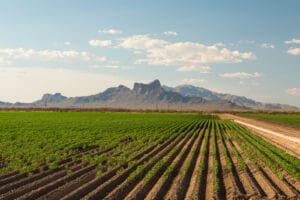Without a cohesive plan, experts worry that the ‘green’ and sustainable energy movement could become muddy
The United States Environmental Protection Agency has a straightforward definition for sustainability.
“Sustainability is based on a simple principle: Everything that we need for our survival and well-being depends, either directly or indirectly, on our natural environment. Sustainability creates and maintains the conditions under which humans and nature can exist in productive harmony, that permit fulfilling the social, economic and other requirements of present and future generations.”
It is this simple principle that has resulted in sustainability making an increasing presence across the globe — and Arizona is no exception. There has been such push for green in Arizona that numerous groups, organizations and companies with a focus on sustainable energy and growing renewable energy resources have emerged in in the state.
All this is great news. However, while many of these businesses and organizations share a passion, what they don’t share is a cohesive vision for how best to proceed forward. The piece of the puzzle that is missing begs the question: how do we get all the players on the same page to create the best plan for sustainable energy in Arizona?
“I suppose if we looked at any area — like the automobile industry — that are now considered very mature industries, they’ve gone through the same kind of thing where there is a plethora of different ways to pursue the business,” says Craig Robb, managing director of Zion Energy Link, a new branch of Zions Bancorporation dedicated to funding renewable energy projects.
And just like any burgeoning industry, sustainability in Arizona has achieved incredible growth over the last several years. The Grand Canyon State is home to the first sustainability school of its kind, Arizona State University’s School of Sustainability. The school offers a wide-ranging program focused on various aspects of sustainability, including its economic, environmental, and social challenges. It has also put Arizona on the map in the eyes of the global green industry.
In addition, many sustainability-focused companies have chosen to make Arizona their home, including China-based Suntech Power Holdings and Rioglass Solar. This was no doubt helped by the passing of Senate Bill 1403, the Renewable Energy Tax Incentive Program that was signed into law in 2009. Incentives for this program include a refundable tax credit and a property tax reduction.
“Arizona is making great progress,” says Barbara Lockwood, director of energy innovation for APS. “We have some very aggressive goals and we’ve seen a tremendous amount of success to date.”
But yet, this success hasn’t translated to a strategic and unified vision between all the entities rooting for this industry to succeed. The verdict is in.
“Yes, there are definitely differing opinions and largely those differences are simply a matter of perspective,” Lockwood says. “Everyone agrees that growth in sustainable energy is good for Arizona. The key issues are how to achieve that growth in a responsible, sustainable fashion.”
There are many ideas as to what direction the industry should take and the key to executing them will be ongoing communication and cooperation.
“The fortunate thing is I’m really seeing a very assertive effort by some great business leaders to try to … create a consistency to those programs and concepts and look at where (everyone can fit),” Robb says. “They all can work together… It’s going to take work and there is a lot people that have a keen focus on taking care of Arizona and dealing with a well-designed, sustainable program for the state,” he adds.
One way to create consistency is to continue growth. Companies that already have a well-known presence in the state — First Solar, SolarCity, and Solon Corporation — are doing their part to keep the green momentum going. First Solar, a global leader in the manufacture of thin film photovoltaic modules chose to base their efforts in a community committed to sustainability, says Steve Krum, director of internal communications at First Solar.
“Our new manufacturing facility in Mesa brings it all home for us,” Krum says. “It shows how the work we do can directly contribute to the local economy. And we receive the benefit of a talented workforce and a community that understands and values the contribution industry has to sustainability efforts.”
Local businesses across the board have also started to implement a variety of sustainability agendas. From the smaller but equally important aspects of sustainability such as recycling programs and green practices to larger facets such as solar installation and wind energy — sustainability isn’t going anywhere.
“There is huge opportunity for all forms of alternative energy to contribute to the grid. Solar, wind, hydro, geo-thermal … all of these make a real difference,” Krum says.
For those involved in the sustainability industry the answer seems to be pretty simple.
“The forum created and nurtured by Valley Forward — and now Arizona Forward — is crucial to ongoing dialogue between all stakeholders aspiring to shape sustainable development. Understanding of each other’s visions, goals and objectives will allow each of us to better define and clarify our individual contributions,” Krum says.



